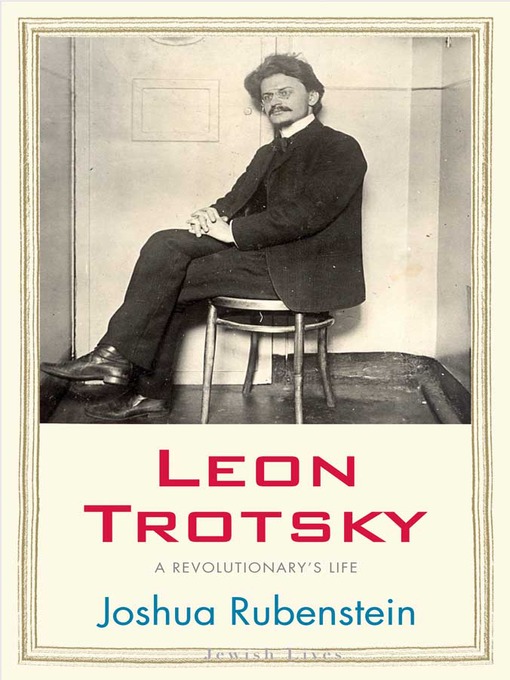From the prizewinning Jewish Lives series, a clear-eyed exploration of the career of Leon Trotsky, the tragic hero who "dreamed of justice and then wreaked havoc," by a leading expert on human rights and the former Soviet Union
Born Lev Davidovich Bronstein in southern Ukraine, Trotsky was both a world-class intellectual and a man capable of the most narrow-minded ideological dogmatism. He was an effective military strategist and an adept diplomat, who staked the fate of the Bolshevik revolution on the meager foundation of a Europe-wide Communist upheaval. He was a master politician who played his cards badly in the momentous struggle for power against Stalin in the 1920s. And he was an assimilated, indifferent Jew who was among the first to foresee that Hitler's triumph would mean disaster for his fellow European Jews, and that Stalin would attempt to forge an alliance with Hitler if Soviet overtures to the Western democracies failed.
Here, Trotsky emerges as a brilliant and brilliantly flawed man. Rubenstein offers us a Trotsky who is mentally acute and impatient with others, one of the finest students of contemporary politics who refused to engage in the nitty-gritty of party organization in the 1920s, when Stalin was maneuvering, inexorably, toward Trotsky's own political oblivion.
As Joshua Rubenstein writes in his preface, "Leon Trotsky haunts our historical memory. A preeminent revolutionary figure and a masterful writer, Trotsky led an upheaval that helped to define the contours of twentieth-century politics." In this lucid and judicious evocation of Trotsky's life, Joshua Rubenstein gives us an interpretation for the twenty-first century.
About Jewish Lives:
Jewish Lives is a prizewinning series of interpretative biography designed to explore the many facets of Jewish identity. Individual volumes illuminate the imprint of Jewish figures upon literature, religion, philosophy, politics, cultural and economic life, and the arts and sciences. Subjects are paired with authors to elicit lively, deeply informed books that explore the range and depth of the Jewish experience from antiquity to the present.
In 2014, the Jewish Book Council named Jewish Lives the winner of its Jewish Book of the Year Award, the first series ever to receive this award.
More praise for Jewish Lives:
"Excellent" –New York Times
"Exemplary" –Wall Street Journal
"Distinguished" –New Yorker
"Superb" –The Guardian
- Available now
- New eBook additions
- New kids additions
- New teen additions
- Most popular
- Try something different
- See all ebooks collections
- Available now
- New audiobook additions
- New kids additions
- New teen additions
- Most popular
- Try something different
- See all audiobooks collections
- Green Mountain Book Award, 2025-2026
- Golden Dome Book Award 2025-2026
- Golden Dome Book Award 2024-2025
- Red Clover Book Award, 2025-2026
- The Red Clover Book Award 2024-2025
- Green Mountain Book Award 2024-2025
- Green Mountain Book Award 2023-2024
- Vermont Golden Dome Book Award 2023-2024
- Red Clover Book Award 2023-2024
- Vermont Golden Dome Book Award Master List 2022-2023
- Green Mountain Book Award 2022-2023
- Green Mountain Book Award 2021-2022
- Vermont Golden Dome Book Award Master List 2021-2022
- See all awards collections



